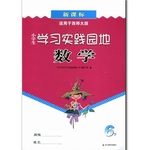题目内容
Samuel Osmond is a 19-year-old law student from Cornwall, England. He never studied the piano. However, he can play very difficult musical pieces by musicians such as Chopin and Beethoven just a few minutes after he hears them. He learns a piece of music by listening to it in parts. Then he thinks about the notes in his head. Two years ago, he played his first piece Moonlight Sonata(奏鸣曲)by Beethoven. He surprised everyone around him.
Amazed that he remembered this long and difficult piece of music and played it perfectly, his teachers say Samuel is unbelievable .They say his ability is very rare, but Samuel doesn’t even realize that what he can do is special. Samuel wanted to become a lawyer as it was the wish of his parents, but music teachers told him he should study music instead. Now, he studies law and music.
Samuel can’t understand why everyone is so surprised. “I grew up with music. My mother played the piano and my father played the guitar. About two years ago, I suddenly decided to start playing the piano, without being able to read music and without having any lessons. It comes easily to me ---I hear the notes and can bear them in mind---each and every note,” says Samuel.
Recently, Samuel performed a piece during a special event at his college. The piece had more than a thousand notes. The audience was impressed by his amazing performance. He is now learning a piece that is so difficult that many professional pianists can’t play it. Samuel says confidently,” It’s all about super memory---I guess I have that gift.”
However, Samuel’s ability to remember things doesn’t stop with music. His family says that even when he was a young boy, Samuel heard someone read a story, and then he could retell the story word for word.
Samuel is still only a teenager. He doesn’t know what he wants to do in the future. For now, he is just happy to play beautiful music and continue his studies.
1.What is special about Samuel Osmond?
A. He has a gift for writing music.
B. He can write down the note he hears.
C. He is a top student at the law school.
D. He can play the musical piece he hears.
2.What can we learn from Paragraph 2?
A. Samuel chose law against the wish of his parents.
B. Samuel planned to be a lawyer rather than a musician.
C. Samuel thinks of himself as a man of great musical ability.
D. Samuel studies law and music on the advice of his teachers.
3.Everyone around Samuel was surprised because he _________.
A. received a good early education in music
B. played the guitar and the piano perfectly
C. could play the piano without reading music
D. could play the guitar better than his father
4.What can we infer about Samuel in Paragraph 4?
A. He became famous during a special event at his college.
B. He is proud of his ability to remember things accurately.
C. He plays the piano better than many professional pianists.
D. He impressed the audience by playing all the musical pieces.
5.Which of the following is the best title of the passage?
A. The Qualities of a Musician
B. The Story of a Musical Talent
C. The Importance of Early Education
D. The Relationship between Memory and Music.
1.D
2.B
3.C
4.B
5.B
【解析】
试题分析:本文是一篇记叙文。文中叙述了一个名叫Samuel Osmond的音乐天才。他在不会读乐谱的情况下,能把听到的乐曲弹奏出来。他的记忆力好,能把听到的乐曲记下来。他不仅能记住乐曲,听到的故事也能复述。
1.
2.
3.
4.
5.
考点:人物类短文阅读。

 学习实践园地系列答案
学习实践园地系列答案一家英语报社向中学生征文,主题是“十年后的我”,请根据下列要点和你的畅想完成短文。
1.家庭:
2.工作:
3.业余生活。
注意:1.词数100左右:
2.可以适当增加细节,以使行文连贯:
3.开头语已为你写好。
你接受一项写作任务,要为当地英语晚报写一篇报道。
[写作内容]
请根据以下信息写一篇英文报道,内容包括:
人物:英国人查理德·阿维斯(Richard Avis) 出生日期:1974年12月1日 时间:2011年开始在世界各地寻找同年同月同日生的人 目的:理解不同文化中成功人生的含义 相关信息: 借助当地媒体寻找 迄今找到32名,其中男性17名,女性15名,来自13个国家 职业包括政府官员、运动员、司机、教师、艺术家等 计划40岁生日前找到40位同年同月同日生的人 打算根据此经历写一本书 |
同年同月同日生的人:time twin
[写作要求]
只能用5个句子表达全部内容
[评分标准]
句子结构准确,信息内容完整,篇章结构连贯。